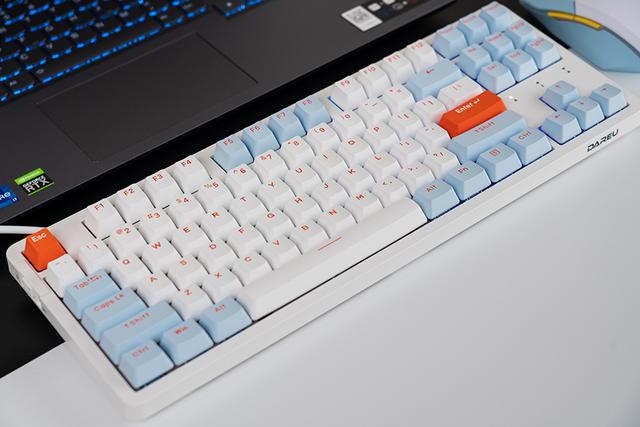新概念第一册lesson9单词音频(新概念第一册完美讲义Lesson)
01词汇详解
1.hello int.喂(表示问候)
老师可补充:Hey, what's up?
2.how adv.怎样
朋友见面:How are you?
回答:Fine, thank you.
老师可补充:How's going?
3.today adv.今天
4.well adj.身体好
e.g.: 1 am very well.我身体很好.
5.fine adj.美好的
e.g.: It's a fine day today.
今天天气很好.
fine 修饰女性漂亮
6.thanks int. 谢谢
7.goodbye int.再见
其他常用告别语:
Bye 比 Goodbye 更随意.
See you.回头见. Take care.保重.
8.see v.见
Nice to see you.很髙兴见到你.
Nice to meet you. 初次见面使用,说话的双方之前不认识Nice to see you 认识的两个人见面时使用,说话的双方是互相认识的
look see watch
look 强调动作
see 强调结果
watch 观看移动的一些东西
9.fat adj.胖的
e.g.: Garfield is a fat cat.
加菲猫是—只胖猫.
反义词:thin/slim adj.瘦的/苗条的
10.woman n.女人
a woman driver 一位女司机
11.tall adj.高的
e.g.: He is tall and thin,他又高又瘦.
反义词:short adj.矮的
12.dirty adj. 脏的
反义词:clean adj.干净的
e.g.: This is a clean cloakroom.
这是一个干净的衣帽存放处.
13.hot adj.然的
反义词:cold adj.冷的
e.g.:Summer is hot and winter is cold.夏天很热.冬天很冷.
hot还有其他意思吗?
This dish is very hot.这道菜很辣.
hot pot火锅 in hot water在困境中
14.old adj.老的
an old man —位老人
反义词:young adj.年轻的
old还可解释为:旧的,反义词为new
15.busy adj.忙的
as busy as a bee 很忙
busy body:爱搬弄是非的人
16.lazy adj. 懒的
e.g.:He is not lazy. He is very
hard-working.他不懒惰,他很勤劳。
02重点语法
1. 疑问副词how构成的特殊疑问句
• 课文原句重现:How are you today?
• 结构:本句是由how构成的特殊疑问句,其结构为“How be动词 主语” ,是朋友或相识的人之间见面时问对方身体情况的寒暄话•
2. 形容词的基本用法
形容词修饰名词,解释为“……的” •
形容词通常有两种用法:
(1)放在名词或代词前面作定语:
a sunny day-个晴天
(2)放在be动词的后面,作句子的表语:The room is dirty.房间是脏的•
e.g.: This watch is new.
这只手表是新的。
√试一试:
Neil: How are you today. Yoyo?
Yoyo: I am very well, thank you.
Neil: How is your dog?
Yoyo: It is very well, too, Neil.
03课文
Steve:Hello, Helen.
Helen:Hi, Steven.
Steve:How are you today?
Helen:I'm very well, thank you. And you?
Steve:I'm fine, thanks.
Helen:How is Tony?
Steve:He's fine, thanks.
Helen:How is Emma?
Steve:She's very well, too, Helen.
Steve:Goodbye, Helen.
Nice to see you.
Helen:Nice to see you, too, Steven. Goodbye.
史蒂文:你好,海伦。
海 伦:你好,史蒂文。
史蒂文:你今天好吗 ?
海 伦:很好,谢谢你。你好吗 ?
史蒂文:很好,谢谢。
史蒂文:托尼好吗 ?
海 伦:他很好,谢谢。埃玛好吗 ?
史蒂文:她也很好,海伦。
史蒂文:再见,海伦。见到你真高兴。
海 伦:我见到你也很高兴,史蒂文。再见。
1. 本课讲到了问候和回答的方式。一般的问候客套话我们在第五 课里给大家讲过,包括“早晨好、中午好、你好吗?”等等,本课的课文中也讲到了 "How are you?I'm fine, thanks."(你好吗?我很好,谢谢。) 的句式。那么如果你其实感觉不好,又要怎么回答呢 ?
How are you today, Emma?
你今天好嘛艾玛 ?
I don't feel very well./ Not bad./I'm having a headache.
我感觉不太舒服。/ 还凑活。/ 我有点头痛。
2. 今天还有一个重要的词:too.
too 是“也”的意思,一般用在句子的最后,和原来的句子用逗号隔开。比如:He's fine, too.
这个意思也能够用单词 also 来表达,不过 also 的位置一般在句子当中。
比如:He is also fine.
再举一个例子:
My mom loves me. She loves my sister, too. My mom loves me. She also loves my sister.
look at
Look at the man. He's very fat.
Look at that woman. She's very thin.
that, this
Look at this housewife. She's very lazy.
Look at that mechanic. He's very dirty.
Look at Emma. She's very hot.
Look at that air hostess. She's very young.
Look at that nurse. She's very clean.
Look at my daughter. She's very tall.

免责声明:本文仅代表文章作者的个人观点,与本站无关。其原创性、真实性以及文中陈述文字和内容未经本站证实,对本文以及其中全部或者部分内容文字的真实性、完整性和原创性本站不作任何保证或承诺,请读者仅作参考,并自行核实相关内容。文章投诉邮箱:anhduc.ph@yahoo.com






